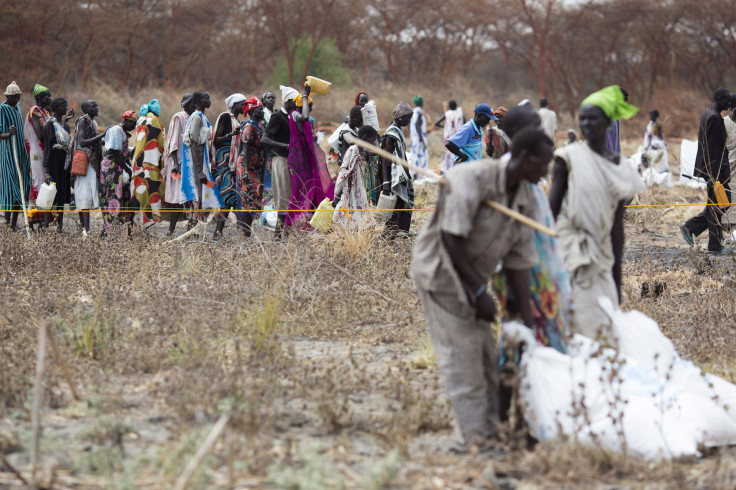South Sudan Peace Talks Suspended Indefinitely After Warring Factions Fail To Reach Power-Sharing Deal

South Sudanese leaders and representatives of the rebel faction that has opposed the government since 2013 were unable to reach a peace accord ahead of a Friday deadline. Negotiations were suspended indefinitely and no timetable is in place for renewed peace talks, according to Al Jazeera.
Mediators had already extended negotiations from Thursday to Friday to allow both sides more time to reach terms on a power-sharing deal. The Intergovernmental Authority on Development, an East African bloc that supervised the negotiations, is expected to address the failed peace talks in a statement later Friday, Reuters reports.
Forces loyal to South Sudan’s President Salva Kiir have clashed with rebels loyal to former Deputy President Rieck Machar since December 2013, when Kiir fired Machar from his post and forced him out of the government. Both men were present at the peace talks. More than 10,000 people have died as a result of the conflict, with more than a million others expelled from their homes.
It’s unclear which aspects of the negotiations prevented the peace agreement. However, IGAD chief mediator Seyoum Mesfin addressed lingering issues between the two sides Thursday when the deadline extension was announced.
“The security area, the power sharing area … the scope of the structure and the levels, these are critical areas that has still kept the parties apart and they are tackling them,” Mesfin told reporters.
The African Union opposes participation by either Kiir or Machar in any transitional government, according to sources familiar with the situation and an as-yet unreleased report obtained by Reuters. The report purportedly calls for South Sudan to fall under the African Union’s jurisdiction.
The U.N. Security Council drafted a resolution this week to sanction individuals and factions responsible for hindering ongoing peace talks. The international governing body created a panel that will target those found to be responsible for atrocities and freeze their assets, ban travel and consider a possible future arms embargo, the New York Times reported.
© Copyright IBTimes 2024. All rights reserved.






















